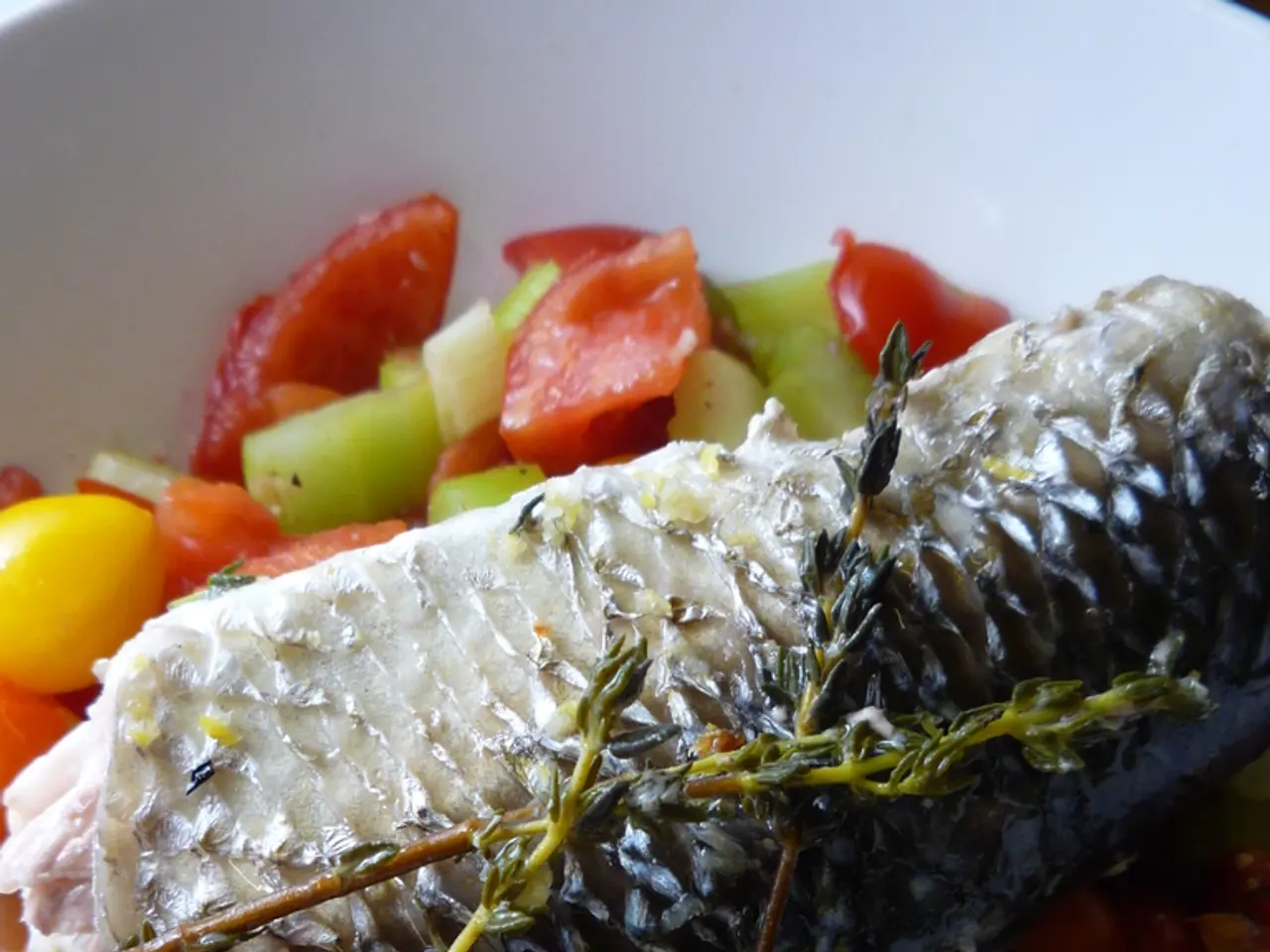Top 10 Accomplished Alternatives to Fish
In the ever-evolving world of plant-based dining, a variety of alternatives to fish and seafood have gained popularity. These options, ranging from seaweed-based products to algae and plant proteins, aim to replicate the taste, texture, and appearance of fish and seafood in a sustainable and environmentally-friendly manner.
Seitan, a vital wheat gluten, can be bought as a powder online or in health food stores. With the addition of flavorings, liquid, and sometimes natural food coloring, people can create seitan seafood, mimicking the texture and taste of fish or seafood. Various recipes for seitan seafood are available online, offering a DIY approach to enjoying these alternatives.
One such innovation is the crispy vegan fish fillet, developed by companies like The Vegan Fisherman and Seaweed Food Solutions. These fillets feature a seaweed “skin” that provides a seafood-like flavor and texture, suitable for recreating crispy fish fillets or fish and chips.
Innovations combining pea protein, algae, potato, and bamboo have produced plant-based smoked salmon analogs. These replicate sliced smoked salmon authentically and can be used in salads, sushi, or lox-style bagels.
Juicy Marbles and EFISHient Protein have developed plant-based versions of white fish fillets with textures and structures resembling cod and grouper. These alternatives can be prepared like traditional fried or grilled white fish dishes.
Products like Oshi’s vegan salmon replicate the sensory qualities of salmon and are used in rolls, poke bowls, or as smoked salmon substitutes.
These plant-based seafood substitutes address environmental concerns like overfishing and ocean pollution while aiming to provide a familiar culinary experience through innovative combinations of seaweed, algae, and plant proteins.
Mushrooms and mushroom sauce can also replicate a fish-like flavor in recipes. Oyster mushrooms, for instance, are a great fish substitute due to their protein-rich, meaty texture and rich flavor. Mashed garbanzo beans can be a good substitute for fish cakes.
To supplement some of the foods on this list that are lower in protein, a person may wish to serve them alongside more protein-rich foods such as legumes, pulses, or a protein shake. Algae-based supplements can provide beneficial omega-3 fatty acids that people might usually obtain from fish.
In some dishes, such as sushi, a person can substitute fish for other animal or plant-based protein sources such as chicken, tofu, or tempeh. Soy sauce, liquid aminos, and tamari can replicate a fish-like flavor in recipes.
Teriyaki chicken sushi rolls can be made as a substitute for fish sushi rolls. If a person follows a vegan, vegetarian, or plant-based diet, they can substitute chicken for tofu, tempeh, or imitation chicken in these rolls.
Mushrooms and mushroom sauce can also replicate a fish-like flavor in recipes. For example, garbanzo bean fish-less cakes can be made by mixing the beans with mashed potato, parsley, nori, and scallions, shaping them into cakes, coating them in panko breadcrumbs, and baking them in the oven.
By exploring these plant-based seafood alternatives, individuals can enjoy a wide variety of dishes while promoting sustainability and reducing their environmental footprint.
These plant-based seafood alternatives, such as seitan seafood and vegan fish fillets, drawn from science and health-and-wellness, often involve food-and-drink ingredients like pea protein, algae, and seaweed. Lifestyle enthusiasts can find numerous DIY recipes online that enable them to recreate these options at home, contributing to a healthier, more sustainable dining experience.




